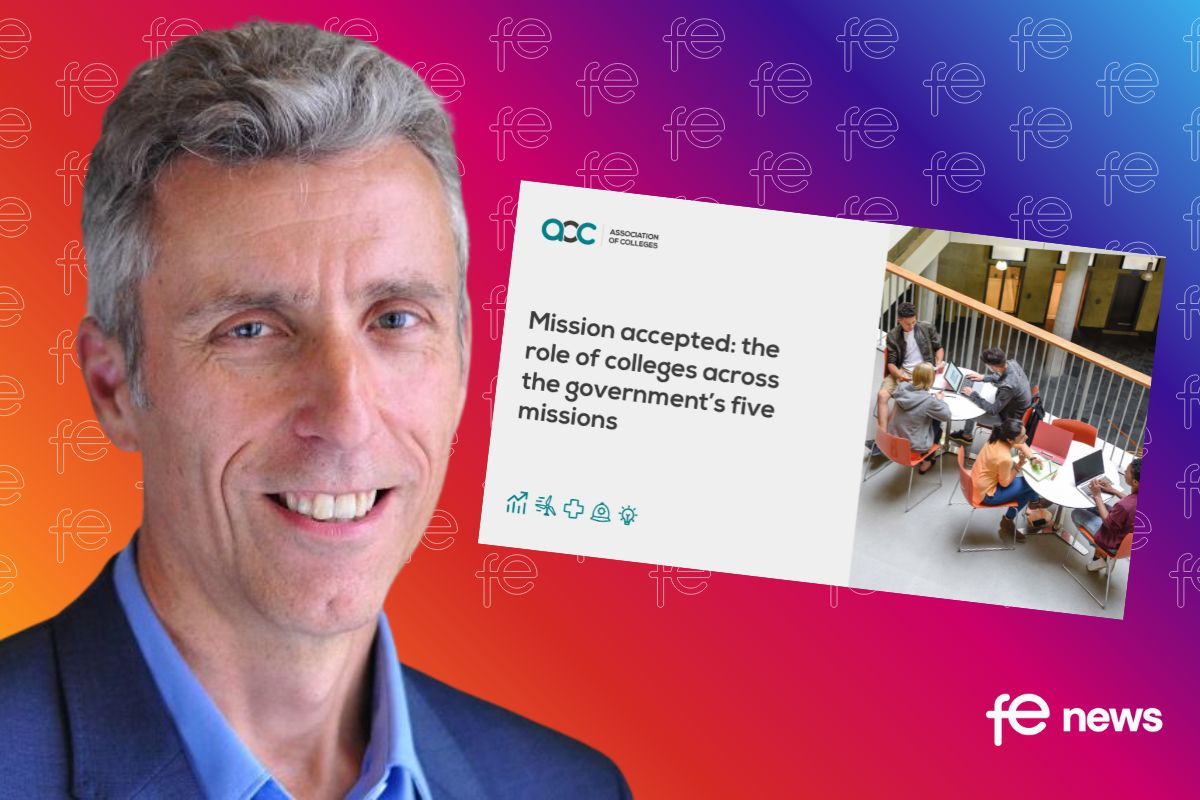SEND: Accountability – on its own isn’t enough!

The SEND Review Green Paper was published at the end of March 2022 and stakeholders now have till the extended deadline of July 22nd to respond.
The ‘Accountability’ buzzword is back alongside some new jargon – Levelling Up! In this article my aim is to unpack accountability in more depth, as well as consider what else is needed for accountability to truly be authentic and effective. I call this the SEND System Triad.
Generically speaking, systems can be defined in terms of input and output. Accountability follows a similar structure. Are we being held accountable for our input or output? Prior to 2011, the focus in special educational needs was very much on input – what practitioners and other services did to support identified needs. However, the problem with this was it placed the doer at the heart of the system, instead of impact and benefit to the user. A significant part of the SEND Reforms 2011-2018 was designed to shift that, placing children, young people, and families at the heart of the system. As a result, the focus was no longer on just how many sessions of therapy someone had received. The question was more about, what difference this has made. This is known as Outcomes-Based Accountability (OBA) or Results Based Accountability (RBA). It is about asking the ‘So what?’ question.
Visually, we can see the following matrix emerges:
| Quantity data | Quality data | |
| Input | How much did we deliver? | How well did we deliver? |
| Output | How much change did we produce? | What quality of change effect did we produce? |
Interestingly when the government talks about their accountability, they focus more on ‘input’ than output. Anyone else noticed that? We hear statement such as, ‘we have invested £x million in y and we have trained up z number of practitioners.’ The rest of the system however is being measured on impact. This raises the question: is the government channelling one type of accountability for itself and another for the sector? Millions have been spent on the SEND Reforms 2011-18 (and beyond). The system is still in a mess and in some respects, it has got progressively worse. The responsibility for this cannot just lie with frontline practitioners at setting or local authority level. As we engage in the SEND Review 2022 and the House of Lords Inquiry into the Children & Families Act 2014, we should be holding the government to account for the errors in judgement they made.
Outcomes-Based Accountability (OBA) was initially developed by Mark Friedman in 1995 in his book ‘Trying Hard is not Good Enough’. A title very apt for the two year wait we have had for the SEND Review 2022 to be published. The focus of OBA is about measuring improvements for users and communities and turning the curve to bring about collective decision-making protocols.
OBA relies on:
- Conversations being jargon free, thus enabling full participation. In theory Section 19 of the Children & Families Act 2014 was designed to activate this. However, those principles did not fully align with the reciprocity principle of co-production.
- Continual cycles of collecting, using and reviewing relevant data to monitor progress and impact. This resonates with Graduated Approach cycle mentioned in the 0-25 years SEND Code of Practice 2015.
- Authentic an engagement of service users and wider community in defining and achieving better outcomes. This is a significant gap in the system for a variety of reasons.
- Clarity and a distinction between population accountability and performance accountability. Population accountability is like the previous 5 outcomes of Every Child Matters (2003). It is about the communities we serve and the wellbeing we collectively want for them. Under the new Schools White Paper 2022, population accountability has been defined in term of ambitious exam grades. Why? It benefits the economy! (see below). Performance accountability is linked to the delivery of a program or service. It determines whether users are better off. Clarity between these two ensures appropriate responsibility is applied and there is enablement in the system. Accountability without enablement does move the system on. We get stuck in stale waters.
In my opinion, the SEND Reforms 2011-2018 failed to different degrees on all four of these aspects. But more specifically points 3 and 4. Defining good outcomes for the individual or population is a weakness of the current system. This operates at two levels. From an areas perspective, part of the reason being the Local Offer, designed as mechanism to support this has not been effectively utilised by the Clinical Commissioning Groups (CCGs). However, the ‘structural’ drivers are all changing with new Health & Social Care Act 2022. The new jargon or acronym is Integrated Care systems (ICSs). Details of how this will pan have yet to be fully shared. At an individual level, there is a knowledge and skills gap in linking outcomes to identified need. For statistical reasons, need has become more about labels that require x input, instead of what outcome is appropriate for this young person based on their aspirations and what support is required to enable them to reach that. Since person-centred approaches were not used to define outcomes, we have not truly developed person-centred plans and yet we try to hold person-centred reviews?
In effect, there has to be a recognition that resources and commissioning is a key part of the solution. With OBA, these also form the two other points of the SEND System Triad.
Resource Allocation Systems (RAS)
RAS is a set of parameters or rules to be applied that allows fair allocation of resources and services. In other words, RAS connects a particular level of need with a particular level of funding. Working within a budget there is transparency on eligibility and in the event, funding is allocated there is a clear statement of the outcomes which the resources must support the achievement of, by supporting needs identified through the assessment process. Hence the need for well-defined outcomes becomes critical. If implemented well, RAS enables services across education, health and social care to combine resources around clearly defined outcomes. Not separate outcomes, but one outcome n considering the requirement from education, health and social care simultaneously. One of the critical parameters I looked into in 2014 and since is level of independence. This parameter works across education, health and social care. It is not sector specific. In determining an outcome, discussion also takes place to consider existing level of independence and desired level of independence. The co-productive dialogue should ask all stakeholders to define the desired level of independence in terms of what would that look like. This helps to ensure additional support and services do not become a crutch, but an enabler. This is the OBA.
Let’s unpack this in real terms. If a young person requires service or resource X for support. Is this a short-term need to enable them to move onto acquiring more skills or is this a long-term requirement? You can see how this one questions affect the level of funding required to support needs, but also ensures the support is targeted towards an agreed outcome.
The SEND Reforms 2011-18 left two unresolved tensions in the system. Firstly, the difference between short-term support and long-term. Secondly, local and national parameters. Localised systems were established with national accountability measures. How different the system would have been if we had had a national system with localised accountability. I’m not convinced SEND Review 2022 still has the balance right as new sub-systems are now in play. So, in addition to settings and local authorities, there are now Trusts and Regional Hubs. More layers of bureaucracy, but not necessarily effective systems for delivery or impact. It will depend on the connectivity between them.
Integrated Commissioning Frameworks (ICF)
This has been one of the greatest challenges of the current system. Yet if RAS were in play, it shouldn’t have been. In terms of preparing for adulthood, OBA, RAS & ICF have to work together, especially for young people with complex needs.
Commissioning is about acquiring the right level of support to meet need, from a service provider who will deliver highest level of impact against the agreed outcome. The Commissioning Support Programme (CSP) 2014 defined commissioning as ‘the process for deciding how to use the total resource available for families in order to improve outcomes in the most efficient, effective, equitable and sustainable way.’ The wider commissioning process includes the stages of procurement, purchasing and contracting, but a commissioning strategy involves settings and local authorities having a clear framework for the way they intend to work with providers and purchase services to improve outcomes for children and young people. As such funding is seen as a mechanism for being responsive to needs, not an outcome in itself. For this to actualise four conditions need to be in play:
- Funding is utilised to be genuinely responsive to individual and community needs.
- There is equity of funding, so that acquiring a ‘label’ does not become a perverse incentive to access support. The current approach does not promote inclusion of acceptance. Instead, It emphasis a medical model of inclusion through labelling. Labelling is like input accountability. It does not change anything.
- There is a smoother transition of funding early years to Post 16. This will enable us to embrace developmental needs and ensure effective transition into Post 16 and beyond.
- There is clear information about what is available locally – a robust Local Offer that engages local voice, current and projections for growing need.
If whilst reading this article, you are thinking – this is complex! I agree. But there are ways to simplify it. If we accurately identity the big problem, define a clear theory of change and address root causes, not just symptoms. That’s a systems approach to change. However, the government are not system thinkers. The Green Paper 2022 nests within and alongside The White Paper 2022. The business case presented for Levelling Up by 2030 is a wider economic one, and not necessarily rooted in the enhancement /benefit of individuals and communities which OBA relies on. Wider economic benefits in 2030 aren’t going to benefit children and young people of today!
To summarise accountability as a resurrected buzzword is not enough. There are some bigger questions and deeper tensions that need to be addressed. We need to be clear on the type of accountability plus the other mechanisms in place to support its effectiveness. If OBA is used, it can convert talk into action relatively quickly through innovative solutions, it can adopt a common-sense jargon free approach, it can build co-productive cultures through impact analysis, but more importantly it can place people (not the economy) at the heart of the system. OBA on its own though isn’t enough!
What will be your feedback to The Green Paper 2022? Feel free to comments on any points I have raised. It is only through dialogue can we collectively learn and growth.












Responses